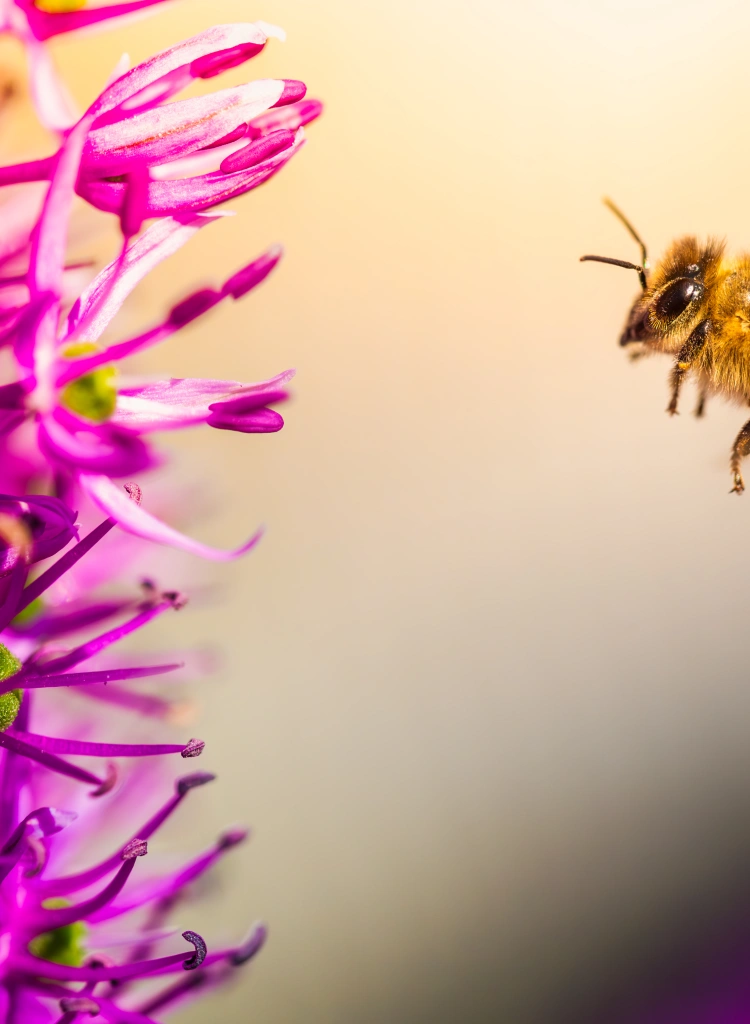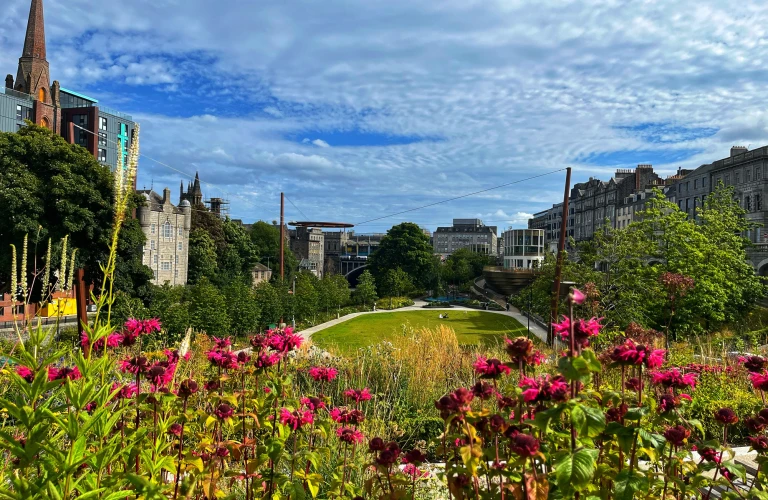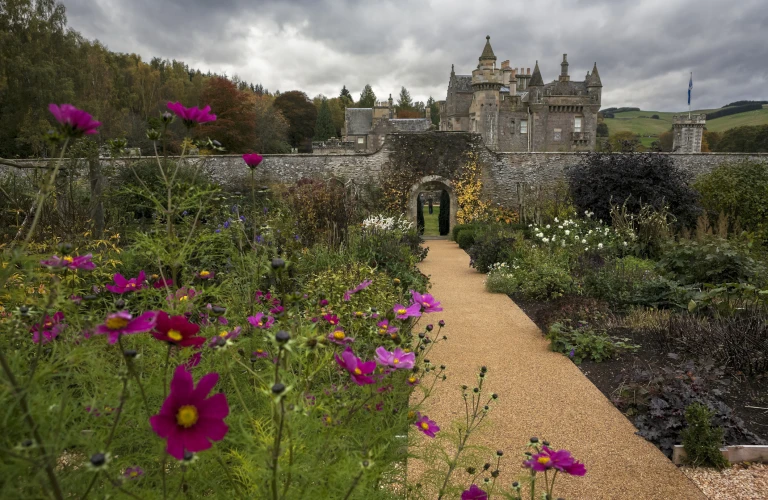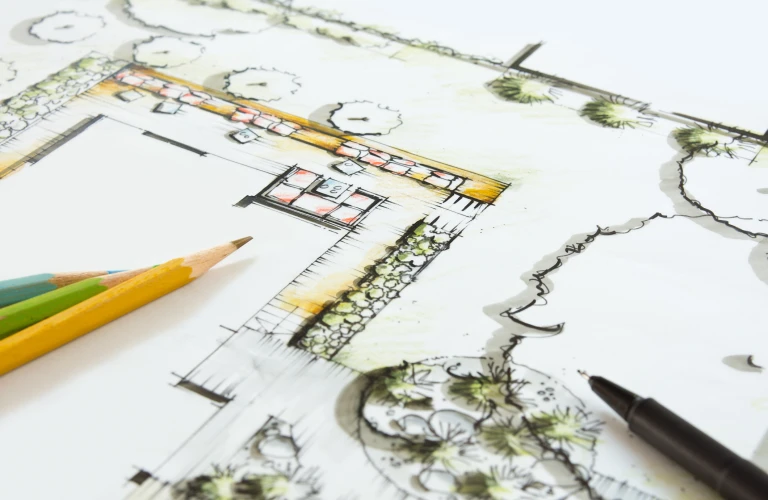
How to Attract Pollinators to Your Garden This Summer
Creating a garden that buzzes with life requires thoughtful planning and the right plant choices. Pollinators like bees, butterflies, and hoverflies face increasing challenges as their natural habitats diminish. At North Hill Gardens, we can help your garden become a vital sanctuary for these essential creatures. When you attract pollinators to your garden, you contribute to a green space network that sustains wildlife across Scotland. A pollinator-friendly garden supports local biodiversity and creates a thriving ecosystem outside your door. These beneficial insects help plants reproduce, ensuring the continuation of wild flora and food crops. The rewards extend beyond environmental benefits. Watching butterflies dance and hearing the gentle hum of bees provides a connection to nature. Summer offers the perfect opportunity to establish plantings that will support pollinators for years.
Top Bee and Butterfly-Friendly Plants for Scotland
You’ll need to carefully choose pollinator-friendly plants if you want to create a thriving, wildlife-friendly garden. Native species are ideal for Scotland’s climate and will be best to provide nectar for bees and butterflies. Top plants for pollinators that add beauty to your garden include:
- Lavender: Fragrant purple spikes bloom from June to September. Bees love its steady nectar supply.
- Purple Coneflowers: Sturdy flowers provide landing spots for butterflies. Their seed heads also feed birds in winter.
- Marigolds: Bright orange and yellow flowers attract pollinators. These hardy annuals self-seed for future seasons.
- Foxgloves: Tubular blooms are a favourite of bumblebees. They thrive in shaded spots.
- Bluebells: Carpet spring and summer gardens with colour. These gorgeous plants are perfect for providing early nectar when few other flowers bloom.
- Buddleia: Known as the "butterfly bush," its flower spikes draw many species.
- Hawthorn: Spring blossoms support early pollinators. Berries feed birds in autumn.
- Apple Trees: Spring blossoms will be key to attracting bees and can provide delicious fruit to snack on every year.
Creating Seasonal Interest for Wildlife
Creating a wildlife-friendly garden helps support pollinators like bees and butterflies throughout the year. Giving them a home means they can continue to grow and thrive without worry. You can provide essential resources for these vital insects with professional landscaping services, planning your plant choices, and ensuring continuous blooms. Follow these simple planting patterns to keep your garden buzzing:
- Spring Bulbs for Early Arrivals: Crocuses and primroses provide nectar for bees emerging from winter dormancy. Plant them in autumn for vibrant spring blooms.
- Perennials for Summer Abundance: Bee balm, catmint, and salvia will flower reliably each year, offering consistent food sources for these creatures.
- Herbs are Pollinator Favourites: Oregano, thyme, and marjoram produce flowers that small insects love. Add them to your summer garden for pollinators.
- Autumn Bloomers for Late-Season Support: Sedum and asters provide nectar when other plants finish blooming.
- Staggered Annuals for Continuous Blooms: Be sure to sow calendula and nigella every few weeks. This will help to extend flowering throughout spring and summer.
Natural Fertilisers and Organic Mulching
Careful garden maintenance is critical, and this goes for mulching and using natural fertilisers like seaweed meal or bone meal. These organic options strengthen roots and promote healthy flowering without causing rapid or unstable growth. Mulch around plants to save water and reduce weeds. Materials like bark chips, leaf mould, or straw are ideal. They hold moisture, prevent weed growth, and break down into organic matter, improving soil fertility. Avoid fresh wood chips near young plants, as they may temporarily reduce nitrogen. Combine fertilisers and mulching to support a thriving, eco-friendly garden.
Essential Habitat Features for Garden Wildlife
Encouraging wildlife in your garden improves biodiversity and supports pollinators like bees and butterflies. Providing habitats ensures these helpful creatures can thrive, making your garden more vibrant and productive. Here's how to attract pollinators and create a haven for beneficial insects:
- Bee Hotels: Provide nesting options for solitary bees by using drilled wooden blocks or hollow stems. Place them in sunny, sheltered spots facing southeast to catch the dawn's sunlight.
- Log Piles: In shady, out-of-the-way corners, stack logs of assorted sizes to create homes for beetles and other decomposers. These insects contribute to a healthy garden ecosystem.
- Dry Stone Walls: Provide crevices for overwintering insects. Stones retain heat, protecting creatures from temperature changes.
- Water Features: Use shallow dishes with landing stones to attract pollinators and support wildlife. Keep water fresh and easily accessible.
- Wild Areas: Let some lawn grow longer to create meadow-like conditions. Leave stems through winter to shelter insects and larvae.
Why Choose North Hill Gardens for Wildlife-Friendly Design
Create a wildlife-friendly garden that is both beautiful and functional. North Hill Gardens combines years of expert knowledge with a focus on supporting local ecosystems. We blend creativity with ecological expertise to design spaces that truly thrive. Here’s how we make it happen:
- Customised Renovation Projects: Existing gardens can be transformed into sustainable, wildlife-friendly spaces without sacrificing style.
- Expert Plant Selection: We choose species suited to your soil, sun exposure, and microclimate, ensuring plants thrive while enhancing pollinator habitats.
- Integrated Habitat Features: We add elements like wildflower meadows, shrubs, and nesting spaces to attract pollinators and other wildlife.
- Support for Local Ecosystems: Our designs incorporate native plants that work seamlessly with Scotland’s wildlife and growing conditions.
- Ongoing Maintenance Advice: We’ll guide you on pruning, planting, and seasonal care to keep your garden flourishing year after year.
Transform Your Garden Into a Pollinator Paradise
Creating a garden that supports bees, butterflies, and beneficial insects requires thoughtful plant selection and habitat design. Combining nectar-rich flowers, chemical-free growing methods, and appropriate shelter creates conditions where pollinators and people can thrive. Professional expertise ensures your summer garden for pollinators achieves lasting success. Contact the North Hill Gardens team to discuss how we can help you create a beautiful, eco-friendly outdoor space.


